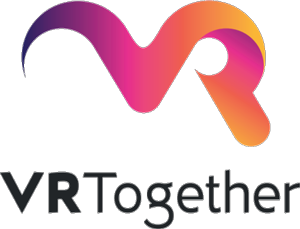
VRTogether at IEEE International Conference on Artificial Intelligence and Virtual Reality (AIVR)
VRTogether will be present at the second edition of the IEEE International Conference on Artificial Intelligence and Virtual Reality, which will take place in San Diego (USA). On Tuesday, 10 December, CWI researcher Dr. Pablo Cesar will give a keynote on “Using Volumetric Video for Remote Communication and Collaboration: development and evaluation of a social VR system based on point clouds“.
This keynote will provide an overview about the challenges to achieve such a goal, based on results from practical case studies like the VRTogether project. Dr. Pablo Cesar will discuss about different technologies, like point clouds, that can be used as the format for representing highly-realistic digital humans, and about metrics and protocols for quantifying the quality of experience. The final intention of the talk is to shed some light on social VR, as a new group of virtual reality experiences based on social photorealistic immersive content and to discuss about the challenges regarding production, technology, and user-centric processes.
The IEEE International Conference on Artificial Intelligence and Virtual Reality (AIVR 2019) is a unique event, addressing researchers and industries from all areas of AI as well as Virtual, Augmented, and Mixed Reality. It provides an international forum for the exchange between those fields, to present advances in the state of the art, identify emerging research topics, and together define the future of these research domains.
Come and follow us in this VR journey with i2CAT, CWI, TNO, CERTH, Artanim, Viaccess-Orca, Entropy Studio and Motion Spell.

This project has been funded by the European Commission as part of the H2020 program, under the grant agreement 762111.








